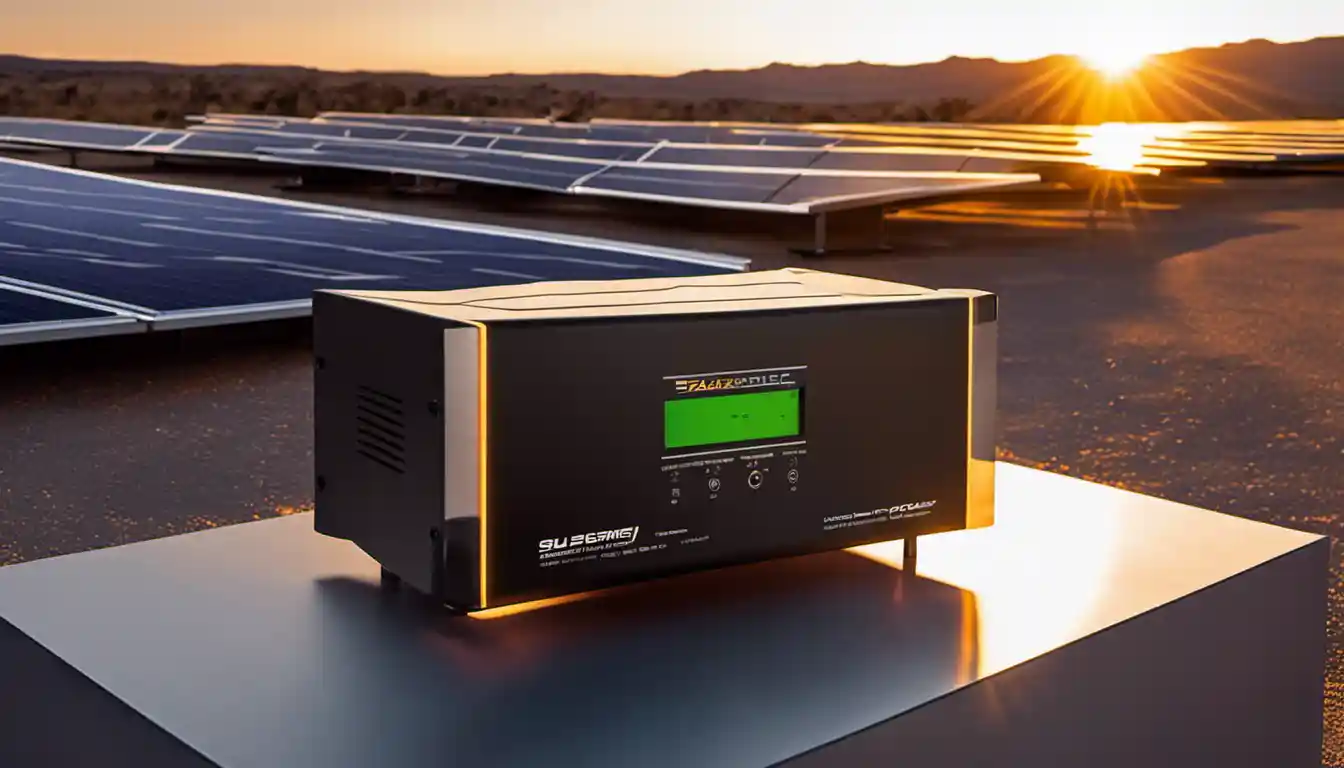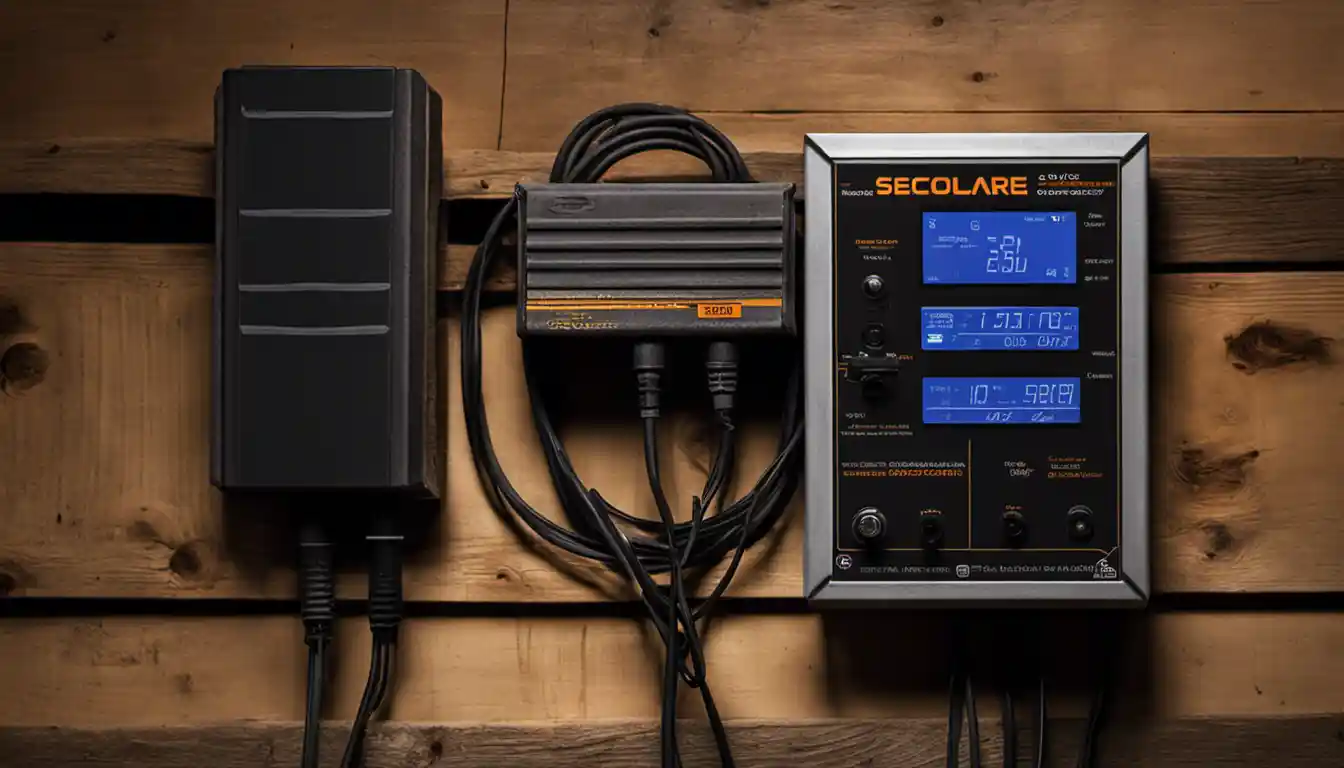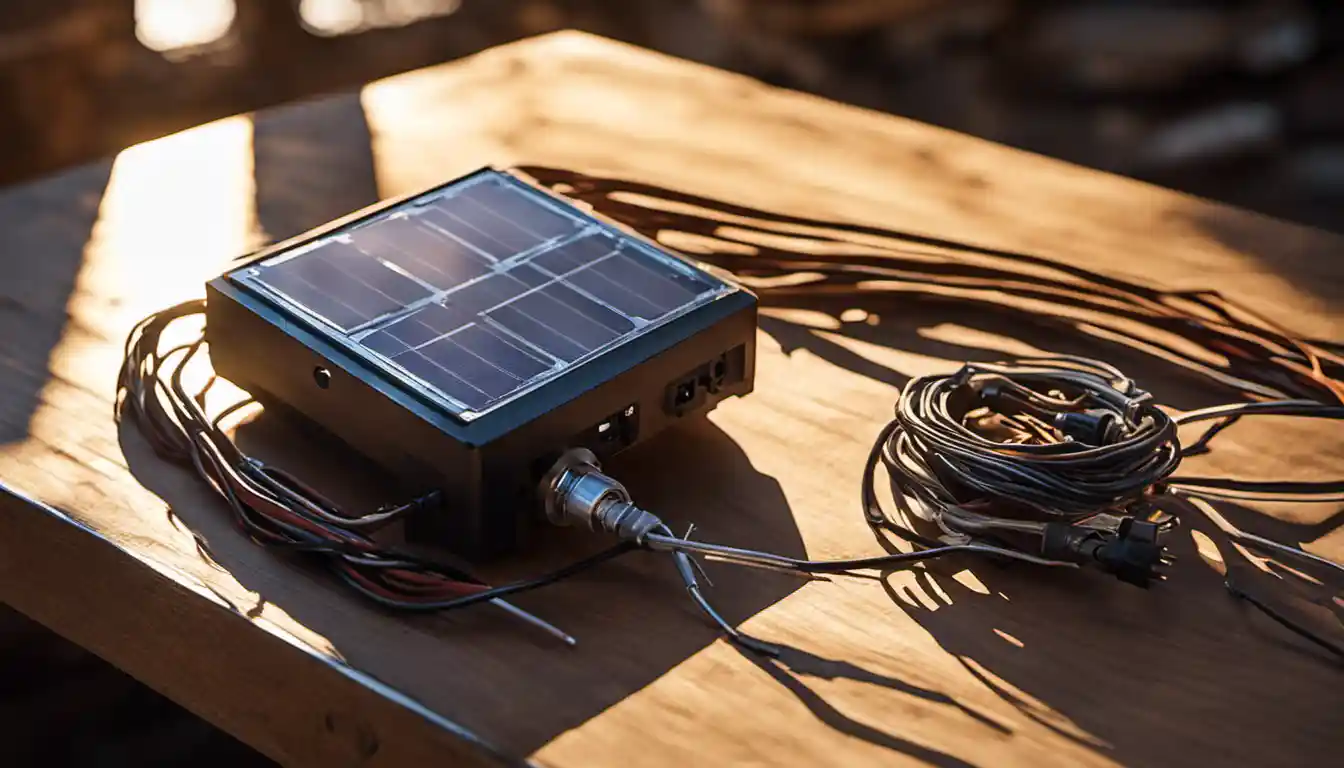Understanding Solar Charge Controllers and Their Role in Battery Charging
A solar charge controller not charging a battery could be due to a few reasons. This could include issues such as an improper setup, wiring problems, a blown fuse, or damaged batteries. It’s recommended to check all these aspects or consult with a solar power expert for the same.
Sure, let’s plunge further.
A key player in your solar power system, a solar charge controller puts the brakes on electric flow from the solar panels to your battery, keeping it from overcharging. But what if your power level indicator screams ’empty’ instead? The problem may be that your solar charge controller is not charging the battery.
Common Reasons Why Solar Charge Controller May Not Charge Battery
Working on a solar-powered system can be tricky – and when your solar charge controller ceases to charge your battery, the situation can turn downright exasperating. Let’s uncover some of the common culprits behind the solar charge controller not charging the battery:
Battery is Discharged
A primary reason could be an excessively discharged battery. Deeply discharged batteries require higher initial voltage and if the controller setting is lower than the acquisition requirement, the battery may not attain the charge.
Faulty Battery
Just like outmoded apples, batteries can also spoil. Check if the battery holds the charge. If it swiftly loses power after a charge, well, it’s probably time for a replacement.
Malfunctioning Solar Panel
Your solar panels could be under-performing or completely kaput. Additional reasons could be due to shaded solar panels affecting their efficiency or their angle not being optimal enough to capture the sun’s rays.
Solar Panels Insufficient Power Delivery
When input voltage from solar panels is extremely low, your solar charge controller might not execute its job of charging the battery. Be sure your solar array is suited to the controller’s required voltage.
Faulty Solar Charge Controller
It might not be your battery’s fault. The culprit could be your solar charge controller. Though these are robust devices, they’re not immune from failure.
Incorrect Wiring or Loose Connection Between Panel and Charge Controller
How’s your wiring? Check to ensure there are no loose connections or fused wires. Remember, always prioritize safety! Handling electricity is not to be taken lightly.
Solar Charge Controller in Charging Protection Mode

Did you know the solar charge controller has a protection protocol? If it senses an overcharge or discharge situation about to occur, it can shut down battery charging to safeguard the whole solar system.
Weather Conditions Impacting Charging
Lastly, don’t overlook Mother Nature’s role. Weather conditions like heavy cloud cover can drastically reduce the effectiveness of solar panels, slowing down or even stopping battery charge.
Checking The Operational Status Of Your Solar Charge Controller
As an old saying in my industry goes, ‘Measure twice, cut once.’ Similarly, before dismantling your solar system setup looking for faults, it’s wise to first check the solar charge controller’s operational status. Here’s how:
How to Verify the Status of a Solar Panel’s Battery Charging?
Most solar charge controllers are equipped with LED indicators or digital displays showing charging status, battery voltage levels, and any warnings.
Deciphering Solar Charge Controller Error Codes
Your device’s user guide will provide keen insights into any error codes displayed by your solar charge controller.
Confirming Solar Charge Controller Power and Amp Display
Monitor the power (watt) or current (amp) display on your device. Unless it’s midnight, it should actively show fluctuating figures, given sunlight is hitting the solar panels.
Load Output Functionality On Solar Charge Controller
Your solar charge controller’s load output functionality should work correctly to effectively charge the battery. To check this, simply see if the controlled loads are being powered when turned on.
Solar Charge Controller Battery Settings
Your solar charge controller and battery go hand in hand. For an optimal partnership between these two, you need to understand a few things:
Understanding Battery Low Voltage Protection

Your solar charge controller offers protection from battery low voltage. When battery voltage falls beneath a certain threshold, your controller automatically disconnects the load to prevent further battery discharge – mitigating any potential damage.
Checking If Battery is Fully Charged and Its Run Out Time
Most solar charge controllers indicate when your battery is fully charged and deliver a rough estimate of how long this charge will last under current conditions.
Controller Settings Contribution to Battery Undercharge or Overcharge
Misconfigured controller settings could contribute to battery undercharge or overcharge, risking battery longevity. You may need to tweak your settings for optimal usage.
Check out more resources on controller settings in our guide on solar charge controller troubleshooting.
Troubleshooting a Solar Charge Controller Not Charging Battery
Is your solar charge controller giving you the cold shoulder by not charging your battery? Well, let’s roll up our sleeves and dive into some troubleshooting:
Inspecting and Correcting Wiring Issues
Start simple – fix any loose, broken, or frayed wires and ensure the right gauge is being used.
Replacing Fuses
Your solar charge controller’s fuse might be blown. Replacing it might just solve your problem.
Cleaning Solar Panels For Optimal Power Generation
Dust can be such a fiend! Dirty solar panels are often the hidden culprits behind charging issues. A simple cleaning could do the trick.
Verifying and Correcting Voltage
Check your battery voltage and rectify if it’s not in line with your solar charge controller’s specs.
Calibrating Solar Charge Controller

Your solar charge controller may need recalibration, especially when upgrading your battery or adding more solar panels.
How to Reset Solar Charge Controller
Sometimes, all your solar charge controller needs is a complete reset. Check your device user guide for specific reset instructions.
How to Troubleshoot a Non-working or Malfunctioning Solar Charge Controller
Various methods are available based on your model type, but you’ll often require a multimeter and a keen knowledge of solar power system workings.
Some Frequently Asked Questions about Solar Charge Controller
Will a Solar Panel Charge a Dead Battery?
Quick answer – yes. A more detailed response – your solar panel’s energy, sun’s availability, and your charge controller’s efficiency all join hands to serve this purpose.
No Display (Amps) on Solar Charge Controller Even When Working
This could be because your solar panels aren’t providing sufficient power. Also, remember to check the display settings!
Load Output Issues on Solar Charge Controller
Load output issues on a solar charge controller can be due to a multitude of reasons from faulty connections to an overloaded circuit.
Solar Charge Controller Power On Issues
This, again, can be due to different factors such as a disconnected or discharged battery, damaged solar panels, or even incorrect installation.
Conclusion: Maintenance and Troubleshooting Ensures Smooth Charge Controller Operation
Essentially, when your solar charge controller isn’t charging your battery, it’s important to be well-versed with solar charge controller troubleshooting and maintenance. Understanding your controller settings, regularly inspecting your system’s components, and fixing any issues swiftly can ensure your solar power system keeps filling your battery and powering your dreams, under the expansive blue sky.



